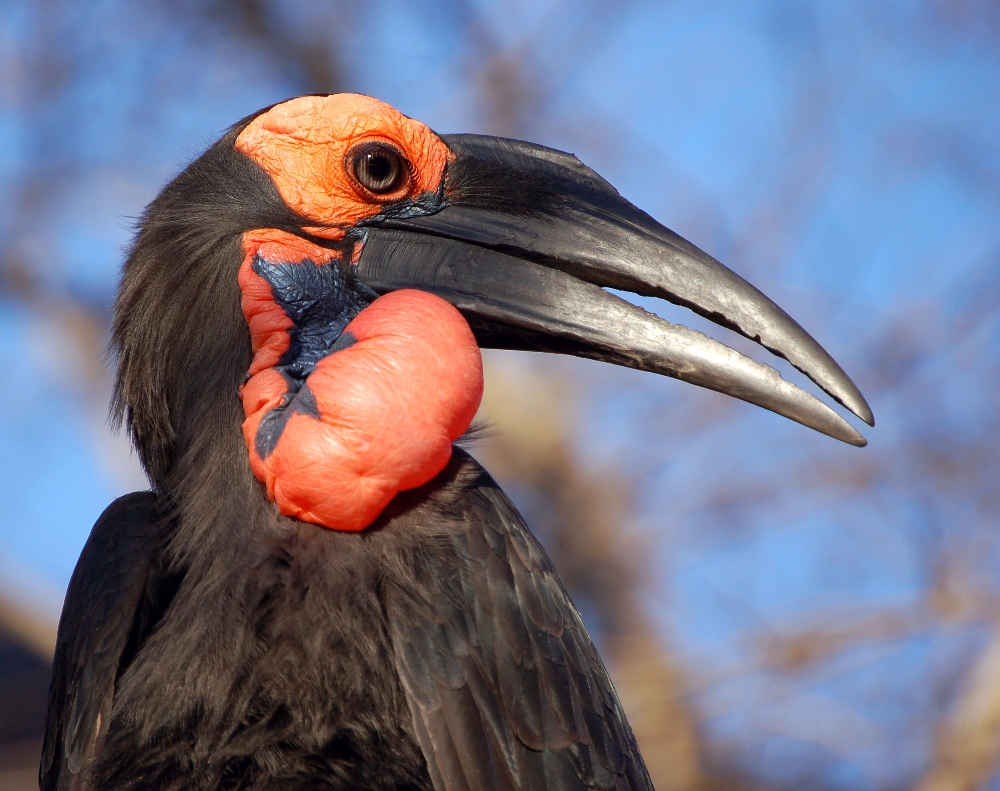
Birds who gave up breeding to care for and protect other birds have evolved to form family groups in their habitats, researchers say.
It was argued that the cooperative parenting method is a paradox of evolution because it is the way the helper provides his labor to increase the fitness of other birds.
Cooperative parenting schemes are concentrated at some geographical point. Scientists have long suspected that the basic properties of the environment play an important role in evolution, but these conditions have proven to be very difficult to discern.
"Environmental diversity promotes cooperative breeding, and others have concluded that these breeding methods tend to occur mainly in more stable environments," said biochemist Carlos Botero of the University of Washington in the United States.
A team of scientists led by Michael Grisha of the University of Zurich and Botero's research team have published phylogenetic studies on 3,005 species of birds to help solve the inconsistency problem.
According to the research team, birds form family groups before they start cooperative nursing in the nest. The two-step framework solves the disagreement over what role the environment plays in the evolution of cooperative breeding.
This is because species already living in families can avoid extinction by shifting to cooperative parenting as climate change becomes unpredictable.
Botero said that the cooperative breeding of birds is widespread and has been well studied until now but has not yet found evidence of evolution.
Some scientists have pointed out that there are a lot of birds that cooperate in a stable and predictable environment, such as rainfall or productivity.
The bird population increases until the habitat is saturated. Young birds can not take up space, so they participate in cooperative nurturing.
A typical example of this pattern is a large hornbill. About 40% of the species have cooperative nurturing. The more stable the habitat for hornbills is, the higher the chance of cooperative nurturing.
Other scientists have argued that many cooperative breeds live in harsh, volatile and unpredictable climates. Co-operative parenting can increase bird populations and prevent birds from dying due to harsh environments.
A famous example of this pattern is the African Starling. African bullfighting, however, is not cooperative. Birds that do not have cooperative nurturing were not able to raise their young when the conditions were very poor.
Botero and his colleagues sought to reconcile this discrepancy by examining the hypothesis of birds' natural history in avian systematics.
"The first thing we did was to ask if there is evidence that evolving cooperative nurturing is a two-step process," Botero said.
Botero questioned whether birds developed in a way that they could not develop the ability to pack family first and help in the nest because the most ancestral birds lived in pairs.
If we ignore the middle step and there are only two steps, we can make a false conclusion about the environmental variables that are favorable to social evolution, and the factor that promotes family life is a confusing factor for those who help in the nest.
"The direct transition from non-family life to cooperative breeding is very rare," he said, "and that family life is a prerequisite for evolution to cooperative breeding.
After confirming that there are two, but not one, transitions, the team looked closely at the environmental conditions favoring each transition.
As expected, many of the conditions that seemed to promote the transition to cooperative nurturing would have facilitated the transition to family life.
Botero says, "A fruitful environment, a good environment, is often favorable for the evolution of family life, and if the birds live in a group, they can be exposed to environmental diversity and can be promoted to cooperative nursing in the nest" said.
The two conversion models better explain the geographical distribution of co-breeding. Places such as southern Africa, Australia and northern South America have experienced dramatic climate change. Botero said birds exposed to the conditions of family life may have chosen cooperative parenting as the climate changed over time.
He said that all the components involved in this kind of analysis are likely to interact in a very complex way, but it is surprising to see such accurate results.
Botero says he is pleased that the findings not only help to improve our understanding of the evolution of cooperative parenting, but also reveal why scientists who have studied the same phenomenon using very similar data have come to a different conclusion .
![[Parenting] Why did the birds evolve to co-parentage parenting why did the birds evolve to co parentage](https://moontore.com/wp-content/uploads/2019/02/parenting-why-did-the-birds-evolve-to-co-parentage-1200x700.jpg)


